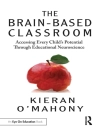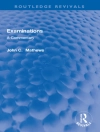The end of apartheid has triggered massive illegal immigration into South Africa from all parts of Africa and beyond. Along with urbanization and internal migration, the end of apartheid has encouraged human smuggling and the trafficking of men, women, and children into the commercial sex market and various sectors of the economy from mining to agriculture and the service industries. Long Walk to Nowhere analyzes the impact of these developments on Nelson Mandela’s vision for a democratic South Africa.
Frankel explores human rights, the political culture, public health, the criminal justice system, and institutional development as South Africa moves into its third decade after “liberation.” Using migration and human trafficking as barometers for democratic success, Frankel establishes that South Africa has become more unstable under two post-Mandela presidencies.
The book covers the three major modes of human trafficking—commercial sex trafficking, child trafficking, and labor trafficking. It also looks at the dynamics of trafficking with a perpetrator-focus, the complex issues of dominance, and the policy responses in light of South Africa’s first comprehensive counter-trafficking legislation designed for implementation in late 2015. Long Walk to Nowhere blends South African experiences with contemporary mass political movements which challenge human rights and good governance on a world-wide basis.
O autorze
Philip Frankel is the former head of the department of Political Studies at the University of the Witwatersrand in Johannesburg and is now a policy and development consultant specializing in organizational transformation. He has worked extensively with local, regional and central government in South Africa, including the presidential office under Mandela and his successor.












